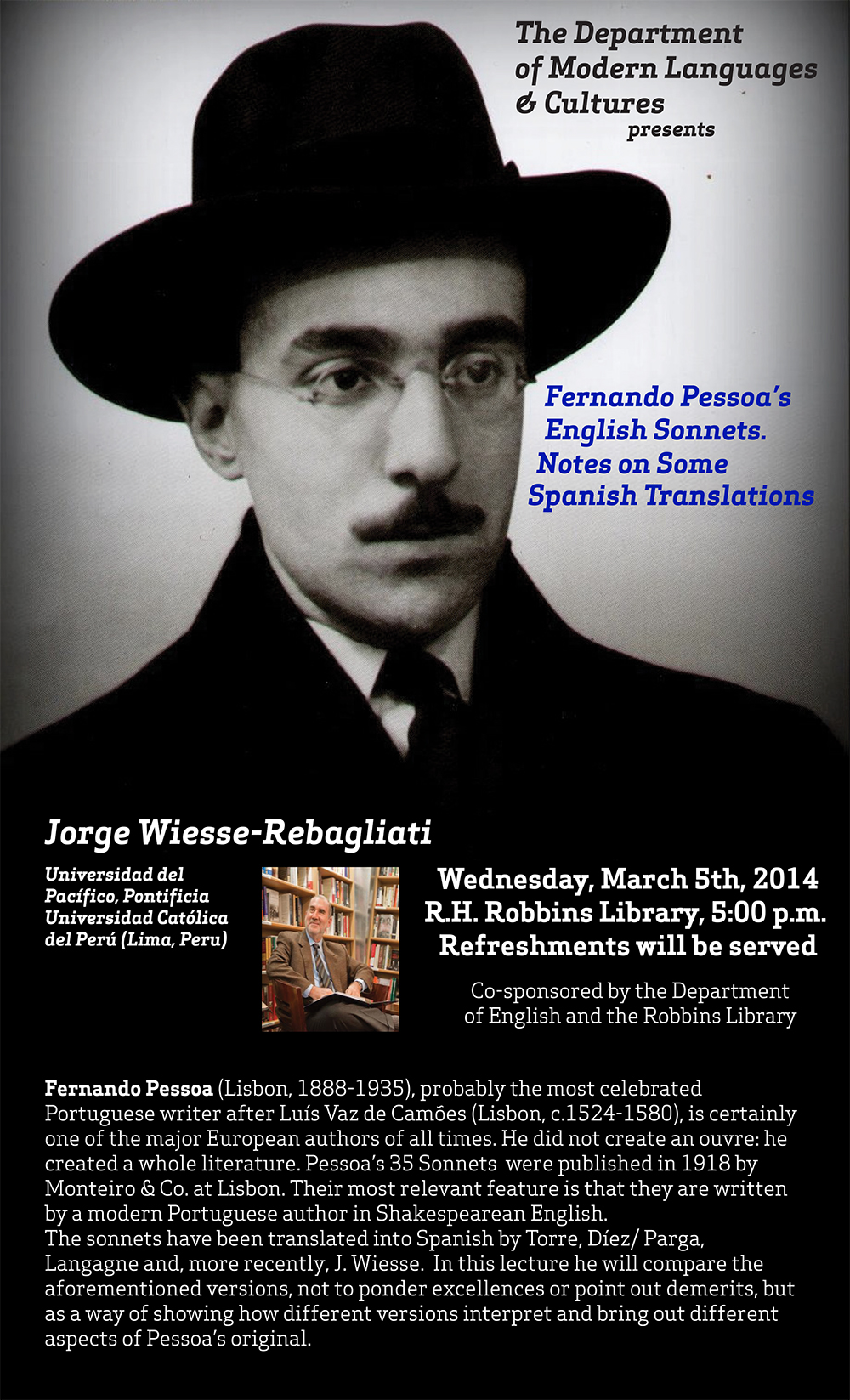“Fernando Pessoa’s English Sonnets: Notes on Some Spanish Translations”
Wednesday, March 5, 2014
5 p.m.
Robbins Library (Rush Rhees 416)
A lecture by Jorge Wiesse-Rebagliati
(Universidad del Pacífico and Pontificia Universidad Católica del Perú, Lima, Perú)
Fernando Pessoa (Lisbon, 1888-1935), probably the most celebrated Portuguese writer after Luís Vaz de Camões (Lisbon, c.1524-1580), is certainly one of the major European authors of all times. As it is said, he did not create an ouvre: he created a whole literature. Alberto Caeiro, Álvaro de Campos and Ricardo Reis are just three of the heteronyms (authors generated by other author) imagined by Pessoa. Pessoa even created an English-speaking heteronym (Alexander Search) and a French-speaking one (Jean Seul de Méluret).
Pessoa’s 35 Sonnets (no heteronym was the author this time, but “orthonym” Fernando Pessoa) were published in 1918 by Monteiro & Co. at Lisbon. As in London’s Durrant’s Press Cuttings of 1919 was observed, “A pessimistic note predominates in these sonnets, and they end in a minor key. The mystery of being mainly occupies the author.” The most relevant of their features, it could be added, is that of a modern Portuguese author writing in Shakespearean English. Viewed from the perspective of a poet that said that his countryland was “a língua portuguesa,” Portuguese, and through the looking-glass of heteronymity, the sonnet-sequence gains in interest and hermeneutic density.
The sonnets have been translated into Spanish by Torre, Díez/Parga, Langagne and, more recently, Wiesse. J. Wiesse’s lecture at University of Rochester’s Robbins Library will compare the aforementioned versions, not to ponder excellences or point out demerits, but as a way to interpret the original, as the different versions bring out different aspects of Pessoa’s original.
Cosponsored by the Department of English and the Robbins Library.
Refreshments will be served.

